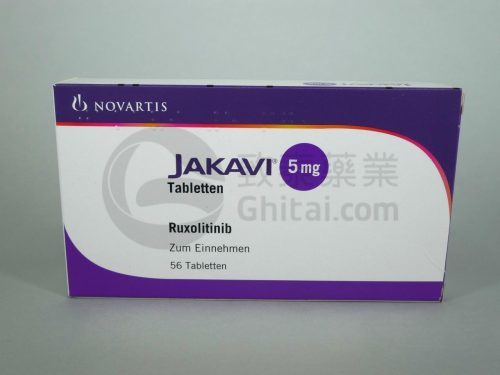Ruxolitinib, also known as ruxolitinib in China, is one of the "new drugs" that have been widely listed in clinical guidelines for the treatment of hematological diseases in recent years, and has shown promising efficacy in myeloproliferative diseases.
The targeted drug Jakavi ruxolitinib can effectively inhibit the activation of the entire JAK-STAT channel and reduce the abnormally enhanced signal of the channel, thus achieving efficacy. It can also be used for the treatment of a variety of diseases, and for JAK1 site abnormalities.
Ruxolitinib is a kinase inhibitor indicated for the treatment of patients with intermediate or high-risk myelofibrosis, including primary myelofibrosis, post-geniculocytosis myelofibrosis, and post-primary thrombocythemia myelofibrosis.
A similar clinical study (n=219) randomized patients with intermediate-risk-2 or high-risk primary MF, patients with MF after true erythroblastosis, or patients with MF after primary thrombocytosis to two groups, one receiving oral ruxolitinib 15 to 20 mgbid (n=146) and the other receiving a positive control drug (n=73). The primary and key secondary endpoints of the study were the percentage of patients with ≥35% reduction in spleen volume (assessed by magnetic resonance imaging or computed tomography) at weeks 48 and 24, respectively. The results showed that the percentage of patients with more than 35% reduction in spleen volume from baseline at week 24 was 31.9% in the treatment group compared with 0% in the control group (P<0.0001); and the percentage of patients with more than 35% reduction in spleen volume from baseline at week 48 was 28.5% in the treatment group compared with 0% in the control group (P<0.0001). In addition, ruxolitinib also reduced overall symptoms and significantly improved quality of life in patients. Based on the results of these two clinical trials, ruxolitinib became the first drug approved by the US FDA for the treatment of patients with MF.
Post time: Mar-02-2022

